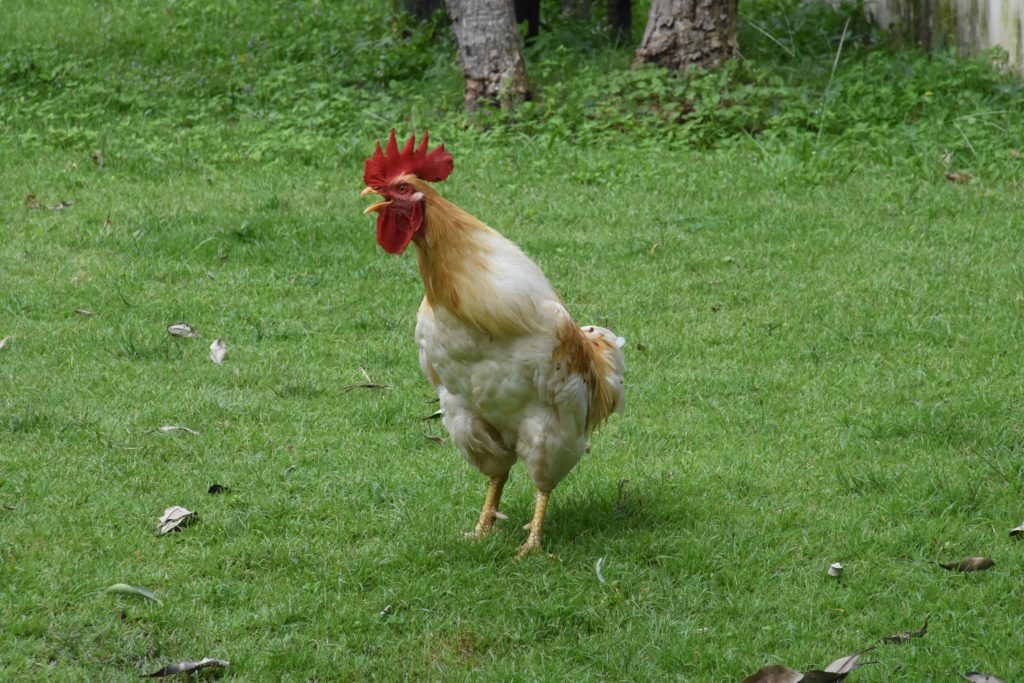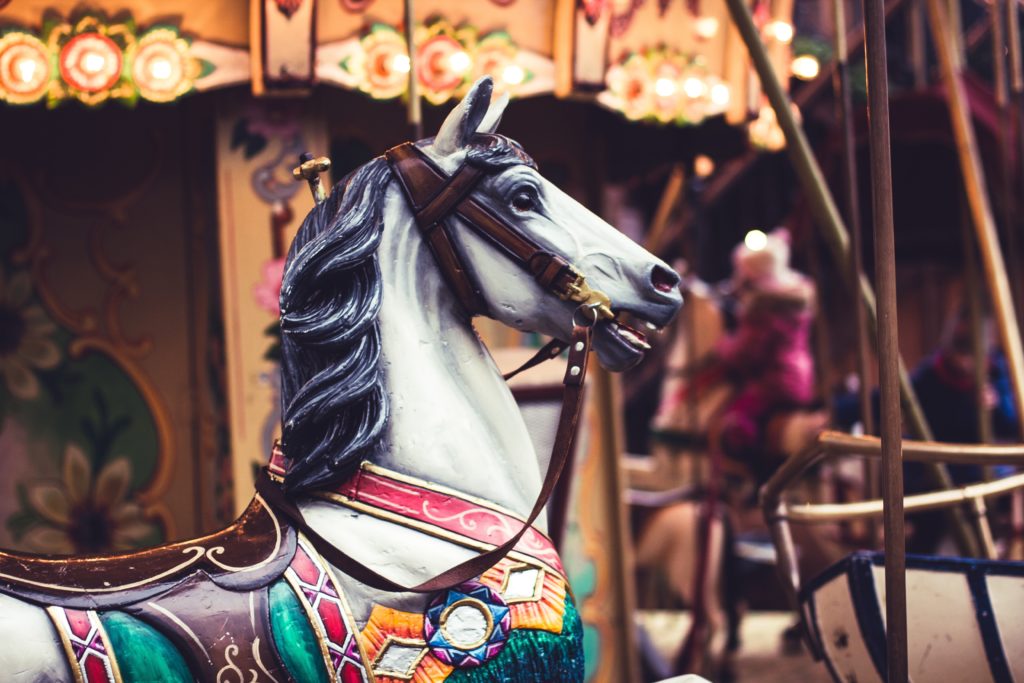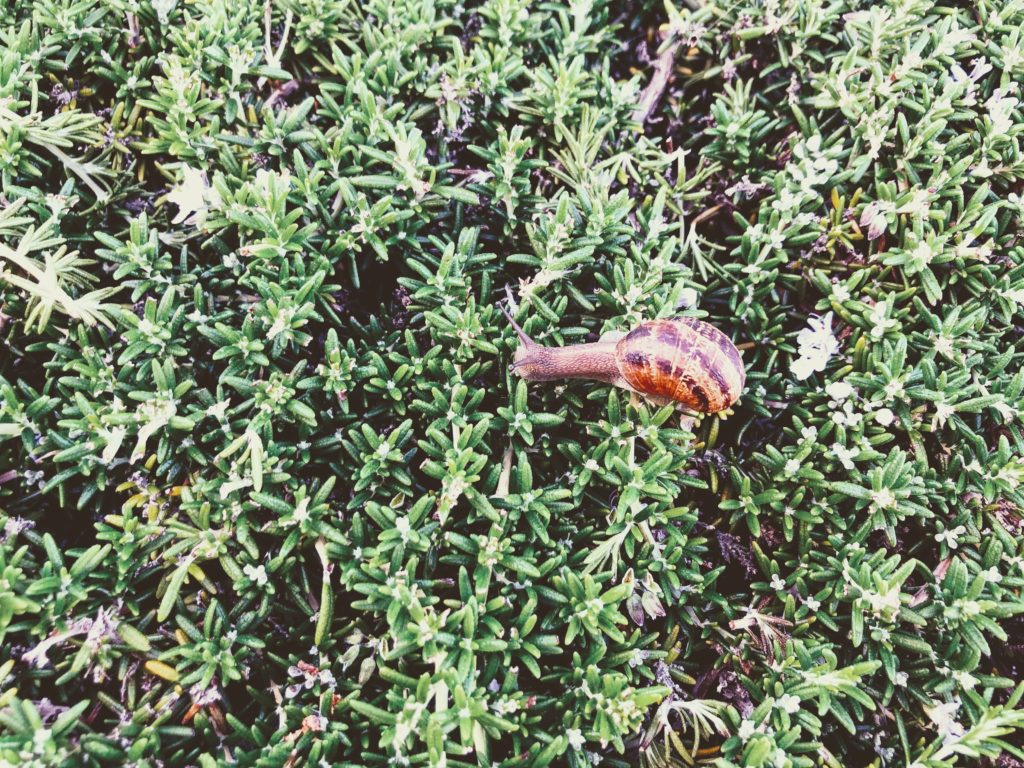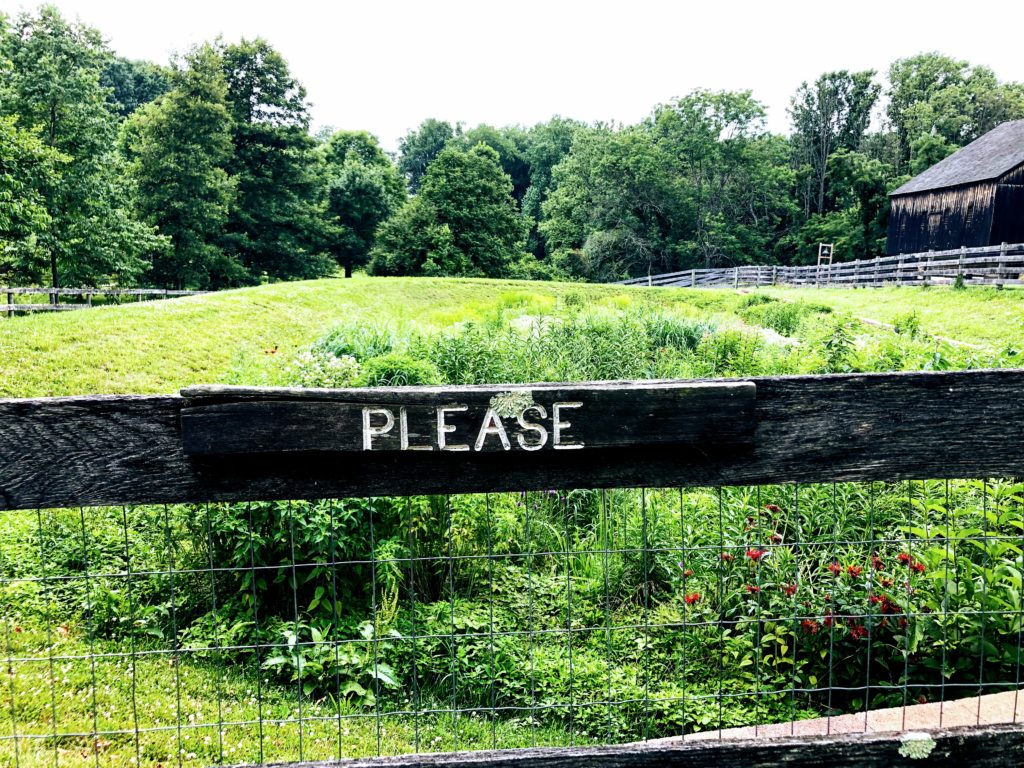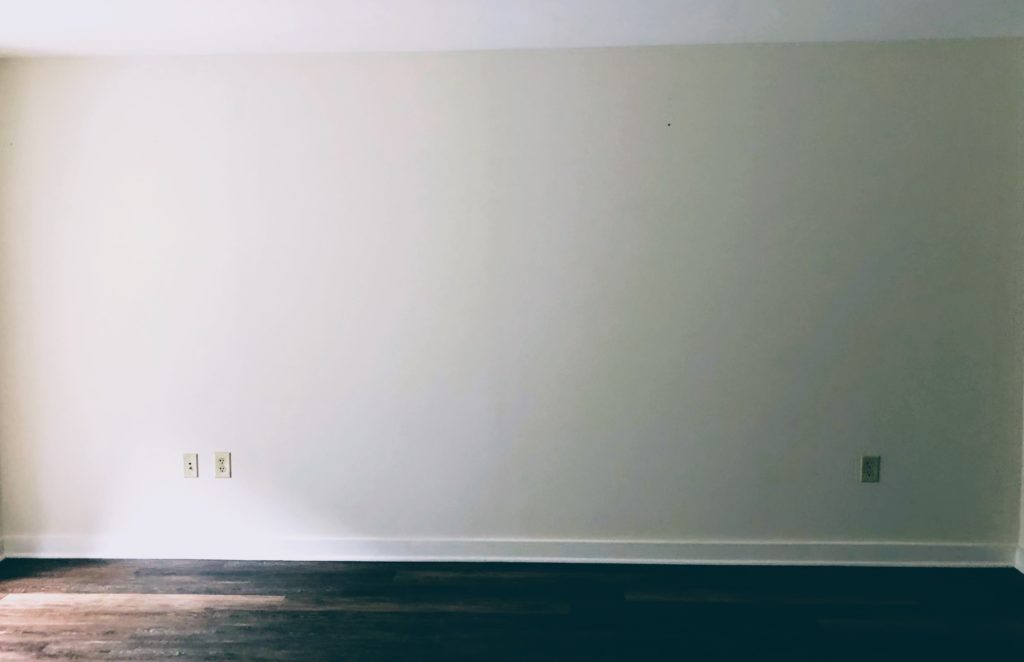I was born in upper Alta California in the late 20th century.
By that time, there were some people who looked calling themselves sixth-generation, which was very impressive indeed.
I couldn’t boast that long background. Like many, I was the first of my family to be born in California, my parents and grandparents having chosen it for its Edenic qualities: its variety of stunning topography, its mild climate, its vibrant economy, its friendly culture.
They were looking for Eden, like we all do. Like those who flooded west 172 years ago ready to fill their pockets with gold.
The land wasn’t empty then. That’s why it was a garden.
We killed Lilith the gardener. We had done this many times before. We excelled at it, down to a science.
The garden began to shrivel, grow brittle. It caught fire.
Again and again and again and again.
I’ve been thinking a lot about where to go next. This damp place where I write this has always felt like a phase rather than a home. I always thought I’d go back.
Not quite ten years ago I left a dry Spanish-golden-grass place, mild and inviting, where the landscape was all crag and roll and flow and crash, for a wet lakebed place, where the tallest hill was a rise of just twenty feet or so, where it sometimes snowed in late April. From there I went to the gray-green fjordy place, and then to the crater-bottom saltwater airwater place, with the stinging winter winds and the mildewy summer heat.
All along the golden place awaited me. I never said goodbye to it, because I never meant to leave it, not forever.
But having left, I see sharply how often it’s on fire. More, longer, hotter, bigger every year. It’s not the rare one-off anymore when the sky turns brown and the sun comes through yellow and your eyes sting.
If I were already there, I would not leave. Probably not.
I am the opposite of indigenous. Not only am I a white American, which means that my ancestors all came here from Europe in relatively recent history. But also, I am that brand of privileged, educated white American who has hopped from place to place to go to school and to get various jobs irrespective of place. I made places everywhere I went; places remade themselves to suit me.
Now I want a place.
I crave being indigenous to somewhere. But where? The average location of my genes is somewhere in the center of England, probably, and that is not my home. The average of where my parents spent their childhoods is somewhere around the middle of this country, and that is not my home. I grew up in Sacramento. That could very well be home, but making it home would be nearly as free a choice as moving to Duluth would be, and that makes me sad. It’s a consumer choice, a menu item. A great and terrible freedom.
“Where do you want to be?” people ask us.
Everyone hears good things about Colorado. It’s also on fire a good deal.
The menu options all have asterisks now, with the rising water and the mega-storms and the smoke and the fire and the floods and the cost of living and the battlefields being set for the future water wars. I don’t want my children to fight in them.
California is stacked high with tinder, with malls and shell mounds, with oaks and homes.
The orange sky, we know in our bones, is an omen. We know this as every human knows an omen when the sky is the wrong color. It’s an omen of something we already know as a fact. The smell in our noses like a cozy, devouring campfire, a sickening thought.
But is it so bad? The risk of actually being evacuated is low, if one chooses the right rise for the placement of one’s house, and the risk of actual fire damage much lower still. Yes, you will deal with the smoke; you will feel grief gnawing your belly when you see the pictures of the forests taken up in red and nearby people’s houses taken down to the foundations. But it won’t take down your house, probably. It almost certainly won’t take your life. It probably won’t send you packing in the middle of the night down the snaking two-lane highway into the dark.
Can you take it?
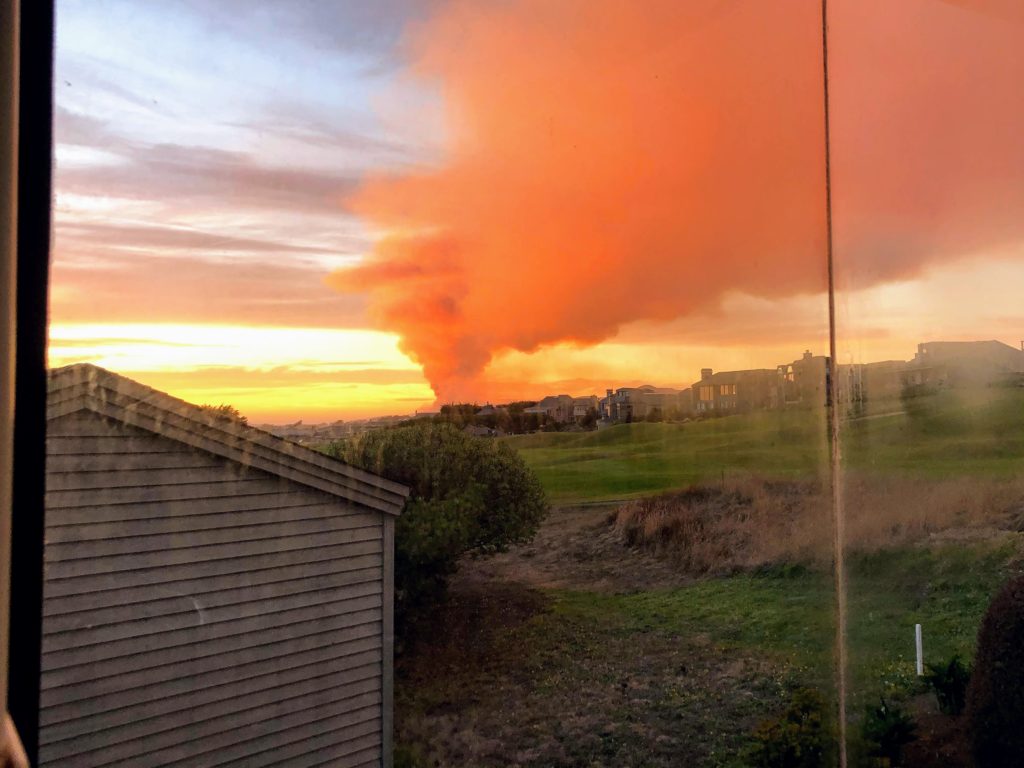
Is it worse than a hurricane? Is it worse than tornadoes? Is it worse than the mystical fear of the volcano spewing hot-wet earth down the valley? Is it worse than the earth opening up, splitting the fence, sending the car careening off the bridge? Is it worse than flat-wet tedium?
I’m selfish. I want a little house in the trees where nothing will ever go wrong and nothing will ever hurt. It would be unjust if I got my wish.
I said it aloud during the thunderstorms. Maybe I cursed it. I said: this rain will dampen the land. But the rain was paltry. The lightning singed right through it.
When the forest burns and the air turns orange and thick with the smell of it, we’re breathing in the forest. Just like the forest breathed us all these years.
